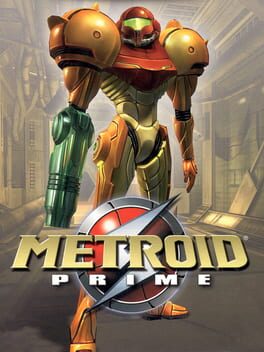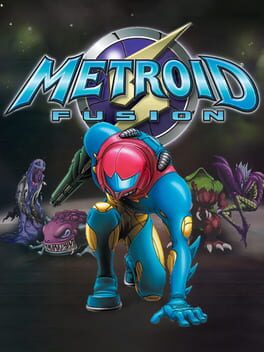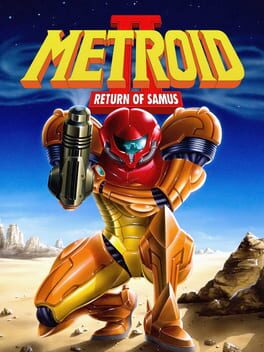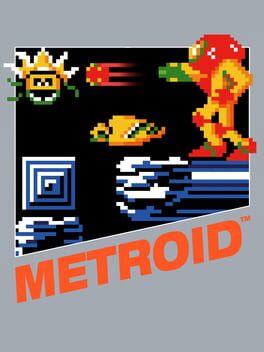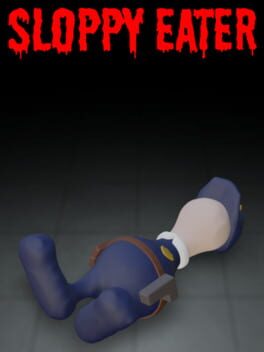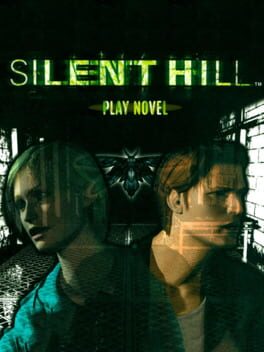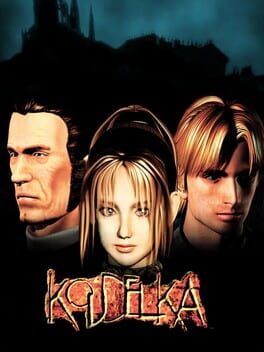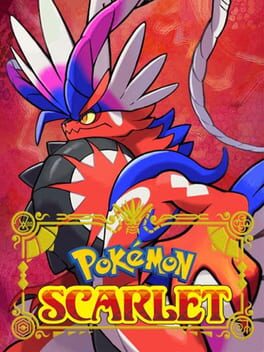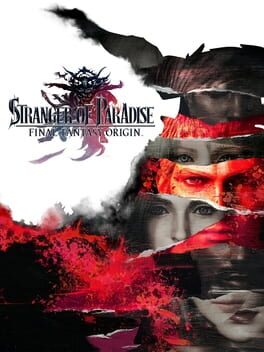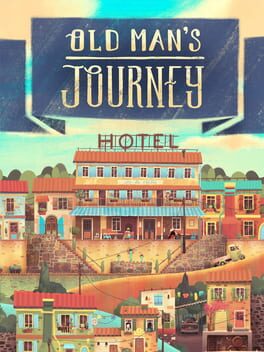2003
Knees buckle before the great expanse
The threshold of ruin overtaken
Thoughts locked into hypnagogic trance
The foundations of reality thoroughly shaken
World screams out a final anguished cry
Searing pain on a land forsaken
A corpse whimpers a final lie
Phantasmagorical tears in space time abound
Clouds frozen in the blackened sky
Trembling ceases within the ground
Destruction slows into the still then
Atmosphere pierced by the soundless sound
A people denied their sundering end
Void spaces of slumber again and again
The threshold of ruin overtaken
Thoughts locked into hypnagogic trance
The foundations of reality thoroughly shaken
World screams out a final anguished cry
Searing pain on a land forsaken
A corpse whimpers a final lie
Phantasmagorical tears in space time abound
Clouds frozen in the blackened sky
Trembling ceases within the ground
Destruction slows into the still then
Atmosphere pierced by the soundless sound
A people denied their sundering end
Void spaces of slumber again and again
2002
After the release of Super Metroid, the Metroid franchise went dormant for a single console generation. There were nearly ten years without a single new game. While I don't find an issue with this - I don't necessarily think franchises need to be alive - it definitely made returning to the property later down the line more difficult. Where do you go from Super Metroid, one of the most beloved games of all time?
Metroid bifurcated in 2002, two titles releasing on the same day. One propelled the franchise further into greater heights, and one allowed it to stagnate, intending on making "Super Metroid again".
Prime is "Super Metroid again." The overarching thematic narrative of the Metroid franchise is ignored here, a game sandwiched between Metroid 1 and 2 to tell a story that is largely irrelevant. With regards to canon, I don't care whether or not this game is a part of the "main story". What I do care about is that it is the beginning of Metroid as franchise, a narrative created outside of the risky thematic confines of the series thus far to make it easier to make more games. How do we make more Metroid games? We make Super Metroid again, but this time in 3D.
Samus once again has to defeat the Space Pirates and grow more powerful and satisfying over the course of the journey. Samus once again slaughters all that get in her way. Samus once again commits atrocities in the name of the Federation.
Metroid as franchise is rote and scary.
Metroid bifurcated in 2002, two titles releasing on the same day. One propelled the franchise further into greater heights, and one allowed it to stagnate, intending on making "Super Metroid again".
Prime is "Super Metroid again." The overarching thematic narrative of the Metroid franchise is ignored here, a game sandwiched between Metroid 1 and 2 to tell a story that is largely irrelevant. With regards to canon, I don't care whether or not this game is a part of the "main story". What I do care about is that it is the beginning of Metroid as franchise, a narrative created outside of the risky thematic confines of the series thus far to make it easier to make more games. How do we make more Metroid games? We make Super Metroid again, but this time in 3D.
Samus once again has to defeat the Space Pirates and grow more powerful and satisfying over the course of the journey. Samus once again slaughters all that get in her way. Samus once again commits atrocities in the name of the Federation.
Metroid as franchise is rote and scary.
2002
After Samus' bold and triumphant return, something sets in. Something she's been running from ever since she first executed a Metroid in Tourian, all those years ago: she is just as much a pawn in the Federation's game as anyone else. She must navigate their prescribed spaces, she must do exactly as they ask. Any exploration off the beaten path, any deviation from their exact orders, will result in punishment.
Super Metroid was a game highly fixated on the idea of empowering the player. Thematically incongruent to Metroid itself so far to me, but something that resonates with many. Fusion is a rebuttal of that, a return to the condemnation through play that Metroid II on the Game Boy fixated so heavily on. Samus, for her actions in the last game, has now become part of the state itself - her cyborg suit melded to become one with her flesh. The two are inseparable. However, she has also become part of the Metroids she swore to kill. A conflicted identity that cannot exist.
And through this journey, Samus reconciles that nature. She kills the part of her that was loyal to the Federation, buries it behind her. She even goes so far as to become an enemy of the state. It is only here, after she has thrown away all that defined her before, that she can learn to grow from the atrocities she committed in the name of empire. It is only here that she can be forgiven.
Super Metroid was a game highly fixated on the idea of empowering the player. Thematically incongruent to Metroid itself so far to me, but something that resonates with many. Fusion is a rebuttal of that, a return to the condemnation through play that Metroid II on the Game Boy fixated so heavily on. Samus, for her actions in the last game, has now become part of the state itself - her cyborg suit melded to become one with her flesh. The two are inseparable. However, she has also become part of the Metroids she swore to kill. A conflicted identity that cannot exist.
And through this journey, Samus reconciles that nature. She kills the part of her that was loyal to the Federation, buries it behind her. She even goes so far as to become an enemy of the state. It is only here, after she has thrown away all that defined her before, that she can learn to grow from the atrocities she committed in the name of empire. It is only here that she can be forgiven.
1994
Intricate, complex spaces where you are the only God. Samus' continued path of slaughter is now in conflict with her privileged "moment of conscience" she was allowed in the last game. Samus' new perspective contrasts deeply with a rehearsal of her first mission, but instead of approaching it from a different angle, she chooses culling yet again. Once more, she destroys ecosystems for simply being in her way. Once more, she commits the colonial atrocities that she condemns the Space Pirates for.
What's most disturbing about all of this, though, is that she is no longer seen as the brutal and grotesque machine of the state as she was before. Her actions are framed as powerful and vindicating, as if she's carving a path for the better of everyone in spite of her clinging to her ideology of totalitarian violence. This violence is no longer critiqued, but exonerated. The fascist Galactic Federation versus the fascist Space Pirates once more, this time in a manner considered satisfying.
The entertainment Super Metroid brings through its cycles of torture are disappointing after the direction Metroid II took. Samus is now a monster in disguise, playing "hero" for puppeteers greater than her.
What's most disturbing about all of this, though, is that she is no longer seen as the brutal and grotesque machine of the state as she was before. Her actions are framed as powerful and vindicating, as if she's carving a path for the better of everyone in spite of her clinging to her ideology of totalitarian violence. This violence is no longer critiqued, but exonerated. The fascist Galactic Federation versus the fascist Space Pirates once more, this time in a manner considered satisfying.
The entertainment Super Metroid brings through its cycles of torture are disappointing after the direction Metroid II took. Samus is now a monster in disguise, playing "hero" for puppeteers greater than her.
The violence of the machine expressed further, dimmer now that the lights are off. Samus is no longer liberating a planet from its oppressor, she has become the cruel fascist, destroying all life. In her first outing, she did this as well - but it was all under the pretense of helping fight the Space Pirates. Here, she gives into them.
The premise of Metroid II is framed around an extermination order against the Metroid species so that they can "never be used as biological weapons again". Instead of questioning this decision, Samus relents, and we enter the torturous, sickly green spaces of SR-88. There is no joy to be had here, no pleasure to be taken in the act of killing.
The game is repetitive and numbing, with no end in sight to the slaughter of a life form. Right up until the very end, where Samus finally grows a conscience after executing a Metroid's mother right in front of it. This moment, where the baby begins to follow you back out of SR-88, is odd in its juxtaposition. It's calm but also anxious. There's a tension here: why did Samus grow a conscience now? Why is the act of walking past all those she killed so relaxing?
And so a perpetrator of systemic violence is allowed to choose which are "worthy" to survive. She is allowed her "moment of conscience." The cycle begins anew.
The premise of Metroid II is framed around an extermination order against the Metroid species so that they can "never be used as biological weapons again". Instead of questioning this decision, Samus relents, and we enter the torturous, sickly green spaces of SR-88. There is no joy to be had here, no pleasure to be taken in the act of killing.
The game is repetitive and numbing, with no end in sight to the slaughter of a life form. Right up until the very end, where Samus finally grows a conscience after executing a Metroid's mother right in front of it. This moment, where the baby begins to follow you back out of SR-88, is odd in its juxtaposition. It's calm but also anxious. There's a tension here: why did Samus grow a conscience now? Why is the act of walking past all those she killed so relaxing?
And so a perpetrator of systemic violence is allowed to choose which are "worthy" to survive. She is allowed her "moment of conscience." The cycle begins anew.
1986
Cold. Mechanical. Rigid.
Breathing. Organic. Living.
These are the dialectics of Metroid. The juxtaposition between the advanced, grim technological and dystopian spaces of the Space Pirates having conjoined themselves cybernetically into the still-beating terrain of Zebes. The life that you encounter here hardly ever attacks you on purpose - it simply exists, but it is in the way. It is in Samus' way, in the way of the Space Pirates, in the way of the Federation. The calculated computer Mother Brain at the core of the planet has no use for the creatures that reside above Tourian. When she dies, the ensuing self-destruction is a foregone conclusion.
The Space Pirates cannot imagine a world without their influence.
Even if there was one that was perfectly fine, twisted and distorted as they made it.
Breathing. Organic. Living.
These are the dialectics of Metroid. The juxtaposition between the advanced, grim technological and dystopian spaces of the Space Pirates having conjoined themselves cybernetically into the still-beating terrain of Zebes. The life that you encounter here hardly ever attacks you on purpose - it simply exists, but it is in the way. It is in Samus' way, in the way of the Space Pirates, in the way of the Federation. The calculated computer Mother Brain at the core of the planet has no use for the creatures that reside above Tourian. When she dies, the ensuing self-destruction is a foregone conclusion.
The Space Pirates cannot imagine a world without their influence.
Even if there was one that was perfectly fine, twisted and distorted as they made it.
2021
I play video games for artistic experiences. Someone once described it as discussing what games made me think about as opposed to what I do in them. It's why I'm even on this website in the first place - I just like to write about games and think about games.
Vampire Survivors is not the worst offense to my creative sensibilities that exists, but it is representative of something larger: the idle game genre. I don't believe there is anything inherently morally bankrupt about the idle game or enjoying it (though I certainly find a lot of the following of this particular one disgusting due to the level of harassment people have received for criticizing it), in spite of what people would strawman detractors of Vampire Survivors as believing, but there is also no meaning to it. The idle game is simply idle. I understand it is useful for people who find it hard to listen to something on its own and concentrate, but what I come to games for is simply not present.
I do not understand the appeal and praise. It's just another empty idle game.
Vampire Survivors is not the worst offense to my creative sensibilities that exists, but it is representative of something larger: the idle game genre. I don't believe there is anything inherently morally bankrupt about the idle game or enjoying it (though I certainly find a lot of the following of this particular one disgusting due to the level of harassment people have received for criticizing it), in spite of what people would strawman detractors of Vampire Survivors as believing, but there is also no meaning to it. The idle game is simply idle. I understand it is useful for people who find it hard to listen to something on its own and concentrate, but what I come to games for is simply not present.
I do not understand the appeal and praise. It's just another empty idle game.
1998
The playground rumor and its association with the video game date back to the late 90s and early 2000s. These time periods were full of speculation about games that could not be meaningfully verified easily despite internet access becoming more widespread - your L is real, your Mews under the Truck, your obtainable Ashbringers. In spite of my fascination for this period of time, I wasn't really around for it, so I didn't get to engage much with it. By the time that I was playing video games and discussing them, the internet was much more centralized and games were being documented much more quickly. Verifying information in a game was as simple as looking it up in most cases.
This leads me into Graal Online. Graal Online is kind of a terrible game and I'm frankly not sure what attracted me to play it when I was 12. It's an MMO that's incredibly listless, spaces full of people but not quite doing anything. In this way, it is masterful as a strange, digital ecosystem. I'm not entirely sure what the purpose of it all is. It's just a large, strange, aimless world that reuses a lot of assets from A Link to the Past. But what sticks out to me the most about it is the simple fact that when I played it, I had no idea what would happen.
There is a safety net with any game that, if something I don't know the answer to occurs, I can simply look it up. It's a bad habit of mine and it's ruined the mystery and magic of so many experiences. With Graal Online, that safety net was never present when I played it. The documentation surrounding this game is just awful - but that's what makes it so special. Without knowing what would happen, just seeing what was in the world and trying to figure out what would do what - I felt the wonder that so many people describe when they play La-Mulana. Or Breath of the Wild. Simply because I couldn't look up the solution when I got frustrated, or even look up if what I was doing would do anything for me. Graal Online gives equal purpose to all things in it. It could ALL be important. There is no way of knowing.
I felt like a kid spreading playground rumors when I told my little sister about the clockwork bird we read about. Or the hammer that was supposed to be in the game, but we never found. Or the magic map between two barrels we had no means of accessing. It was a phenomena that I'd love to feel again.
This leads me into Graal Online. Graal Online is kind of a terrible game and I'm frankly not sure what attracted me to play it when I was 12. It's an MMO that's incredibly listless, spaces full of people but not quite doing anything. In this way, it is masterful as a strange, digital ecosystem. I'm not entirely sure what the purpose of it all is. It's just a large, strange, aimless world that reuses a lot of assets from A Link to the Past. But what sticks out to me the most about it is the simple fact that when I played it, I had no idea what would happen.
There is a safety net with any game that, if something I don't know the answer to occurs, I can simply look it up. It's a bad habit of mine and it's ruined the mystery and magic of so many experiences. With Graal Online, that safety net was never present when I played it. The documentation surrounding this game is just awful - but that's what makes it so special. Without knowing what would happen, just seeing what was in the world and trying to figure out what would do what - I felt the wonder that so many people describe when they play La-Mulana. Or Breath of the Wild. Simply because I couldn't look up the solution when I got frustrated, or even look up if what I was doing would do anything for me. Graal Online gives equal purpose to all things in it. It could ALL be important. There is no way of knowing.
I felt like a kid spreading playground rumors when I told my little sister about the clockwork bird we read about. Or the hammer that was supposed to be in the game, but we never found. Or the magic map between two barrels we had no means of accessing. It was a phenomena that I'd love to feel again.
2021
The endless nightmare of suburbia sprawls out in front of you. There is no end to Sloppy Eater. Even after acquiring the meat that you came to the store for, the endless nature of the consumerist hellscape we have constructed for ourselves continues to repeat itself.
Sure, you may buy the food you need from the store. But you always return. It will always be, in some ways, a socially draining experience. You constantly need to find some way to combat the thoughts and anxieties racing through your head, because they will continue to pile up and crush you. The horrors of the mundane see you as fundamentally different. You get looks and strange remarks thrown at you.
You are fundamentally othered for who you are. Being a trans woman is like being a vampire in a supermarket. It's an arresting and isolating experience. We are judged by all who would be our peers.
Sure, you may buy the food you need from the store. But you always return. It will always be, in some ways, a socially draining experience. You constantly need to find some way to combat the thoughts and anxieties racing through your head, because they will continue to pile up and crush you. The horrors of the mundane see you as fundamentally different. You get looks and strange remarks thrown at you.
You are fundamentally othered for who you are. Being a trans woman is like being a vampire in a supermarket. It's an arresting and isolating experience. We are judged by all who would be our peers.
This review contains spoilers
The first four Silent Hill games are works that hold a lot of personal value for me. These games are really special and I recommend that everyone play through all four at some point. There's something extremely magical and profound about what Team Silent was doing during that time period: something really clicked there. So, I was excited to learn that there was a visual novel written by the person who wrote the script of Silent Hill 1 on the Game Boy Advance and I figured I should play it.
I was incredibly disappointed.
The first half, Harry's story, is simply a retelling of the original Silent Hill with extremely little variation. While that narrative is still compelling in its most basic form, it's a lot more boring when the atmosphere and the exploration are completely stripped from it - with prose that wasn't translated in a particularly compelling way, either. I find it extremely funny how puzzles will just solve themselves in front of you. Why even bother with the inclusion? What's the point?
Cybil's half of the story was what interested me more when I picked up this game, and while it is largely original to this game, it also left me with a lot of questions about what the game was even going for. There are some interesting decisions there that completely change the ramifications of the plot, such as Harry dying, but overall it just feels like a strange series of events. We never even really learn about the religious abuse that undercurrents throughout the town here. Cybil just has a Fucked Up journey, I guess.
At the end of the day, I'm not really sure what the purpose of this thing is. Is it just meant to port Silent Hill 1 to the GBA? I'm certain there were better ways of doing it, but this is serviceable enough in that regard. But why do it like this? Why include a whole second route that seems completely incoherent? What was the purpose here? It's utterly bizarre, but not in the way that Silent Hill often is, where it piques my imagination.
It's just kind of strange.
I was incredibly disappointed.
The first half, Harry's story, is simply a retelling of the original Silent Hill with extremely little variation. While that narrative is still compelling in its most basic form, it's a lot more boring when the atmosphere and the exploration are completely stripped from it - with prose that wasn't translated in a particularly compelling way, either. I find it extremely funny how puzzles will just solve themselves in front of you. Why even bother with the inclusion? What's the point?
Cybil's half of the story was what interested me more when I picked up this game, and while it is largely original to this game, it also left me with a lot of questions about what the game was even going for. There are some interesting decisions there that completely change the ramifications of the plot, such as Harry dying, but overall it just feels like a strange series of events. We never even really learn about the religious abuse that undercurrents throughout the town here. Cybil just has a Fucked Up journey, I guess.
At the end of the day, I'm not really sure what the purpose of this thing is. Is it just meant to port Silent Hill 1 to the GBA? I'm certain there were better ways of doing it, but this is serviceable enough in that regard. But why do it like this? Why include a whole second route that seems completely incoherent? What was the purpose here? It's utterly bizarre, but not in the way that Silent Hill often is, where it piques my imagination.
It's just kind of strange.
1999
This review contains spoilers
During my play through of Koudelka, I was also in the midst of working on a script for a massive Silent Hill 2 project. It was there that I wrote that Silent Hill 2 was the only game I had played that truly understood the prison industrial system as an incoherent, religious nightmare.
I guess that I have to change that.
Koudelka understands prison. It understands being trapped. By religion, by your own past. Whether you're a literal inmate, tortured to death for things that you could not be faulted for, or a traveler who has been excommunicated from her community due to the bizarre circumstances of her birth. Prisons of expectations, prisons of ideology, prisons of the faith.
Punitive justice has its roots in the faith. Christianity loves to punish, the idea that there is an enemy to be punished - even if it also believes anyone can also be forgiven, that is far less emphasized. Judgment. Brimstone. Mortar.
The monastery of Koudelka is revealed fairly early on in the narrative to be a place where many were tortured to death, often for no meaningful crime, only that they needed to disappear. A betrothed woman who the man ultimately didn't marry. A child who was born of an affair. These things needed to be "erased" from the record in the most brutal way possible. After all, they didn't fit the church's idea of the world.
Each character, too, is trapped in their own prison. Koudelka is haunted by her past and present, an outcast who, while extremely helpful and goodhearted, is rejected by all in society. Edward has no purpose, a listless man adrift in a sea of ideas. James, of course, is also trapped within his faith - but also his devotion to his lost lenore, a woman who died in a horrible accident several years ago.
There is a prison for all of us, but there's always a way out.
I guess that I have to change that.
Koudelka understands prison. It understands being trapped. By religion, by your own past. Whether you're a literal inmate, tortured to death for things that you could not be faulted for, or a traveler who has been excommunicated from her community due to the bizarre circumstances of her birth. Prisons of expectations, prisons of ideology, prisons of the faith.
Punitive justice has its roots in the faith. Christianity loves to punish, the idea that there is an enemy to be punished - even if it also believes anyone can also be forgiven, that is far less emphasized. Judgment. Brimstone. Mortar.
The monastery of Koudelka is revealed fairly early on in the narrative to be a place where many were tortured to death, often for no meaningful crime, only that they needed to disappear. A betrothed woman who the man ultimately didn't marry. A child who was born of an affair. These things needed to be "erased" from the record in the most brutal way possible. After all, they didn't fit the church's idea of the world.
Each character, too, is trapped in their own prison. Koudelka is haunted by her past and present, an outcast who, while extremely helpful and goodhearted, is rejected by all in society. Edward has no purpose, a listless man adrift in a sea of ideas. James, of course, is also trapped within his faith - but also his devotion to his lost lenore, a woman who died in a horrible accident several years ago.
There is a prison for all of us, but there's always a way out.
2022
This review contains spoilers
The capitalist machine is an unforgiving beast. It leaves us out to die when we are no longer useful, strips us of who we are, and surveils us at all times to ensure our accessory in all of its moves. It is the automaton that endlessly destroys planet after planet, all in the name of growing itself. When the last star dies, capital will be finally satisfied.
Yet, Signalis seems to disagree with me. It seems to point the finger at leftists instead.
Many have spoken about Signalis as if it portrays some anti-fascist narrative, and sure, in some unspoken general sense it does. But all of its iconography is extremely reminiscent of Red Scare-era Cold War propaganda - the game is clearly set in a hypothetical future East Germany. While I don't think East Germany is necessarily worthy of praise beyond its attempts (as most communist projects, unfortunately), the equation of an attempt at revolution as something fascist is utterly absurd to me.
A real tone-setter for the rest of the game hits you right in the face at the beginning: a poster that says that you have a limited inventory size because no private property or something. Are you fucking kidding me?
This is not some incisive and informed critique of the ways leftists have failed in the past. It's just vapid.
Yet, Signalis seems to disagree with me. It seems to point the finger at leftists instead.
Many have spoken about Signalis as if it portrays some anti-fascist narrative, and sure, in some unspoken general sense it does. But all of its iconography is extremely reminiscent of Red Scare-era Cold War propaganda - the game is clearly set in a hypothetical future East Germany. While I don't think East Germany is necessarily worthy of praise beyond its attempts (as most communist projects, unfortunately), the equation of an attempt at revolution as something fascist is utterly absurd to me.
A real tone-setter for the rest of the game hits you right in the face at the beginning: a poster that says that you have a limited inventory size because no private property or something. Are you fucking kidding me?
This is not some incisive and informed critique of the ways leftists have failed in the past. It's just vapid.
2022
This review contains spoilers
The eternal battle of the Pokémon series is one to leave the past behind. Ever since Generation 1, the games have iterated upon themselves without cease, leading to experience after experience without any particular interest in standing out on their own. Sure, each generation has their own peculairities, but those are often underdeveloped and superficial. Black and White are the closest these games have gotten to carving out a unique identity amongst the sea of prequels and sequels to me, hence why they are my favorites of the bunch, but even they are beholden to the past.
Scarlet and Violet is also within this constant. The endless capitalist machine of iteration upon iteration, of endless franchising. To pretend otherwise would be silly - Pokémon IS the machine. It's the world's biggest franchise of all time. Sure, there might be an open world now, and sure, the quality of the writing might have surprised me, but it's still Pokémon. You still have the same structure of battles and exploration, the plot still doesn't tread particularly provocative ground, and the presentation is still kind of a nightmare. What do you expect?
There's a part toward the end of the game, where in order to stop the ecology of the surrounding region from being destroyed, you have to shut down a time machine which is pumping out prehistoric Pokémon. In doing so, no more prehistoric Pokémon will be able to come to the present ever again. The past will become sealed off, with no way of accessing it again. Perhaps if Pokémon ever wants to become something truly special again, then it needs its own past to become inaccessible. Pokémon needs to be reborn, even though it never will be.
Scarlet and Violet is also within this constant. The endless capitalist machine of iteration upon iteration, of endless franchising. To pretend otherwise would be silly - Pokémon IS the machine. It's the world's biggest franchise of all time. Sure, there might be an open world now, and sure, the quality of the writing might have surprised me, but it's still Pokémon. You still have the same structure of battles and exploration, the plot still doesn't tread particularly provocative ground, and the presentation is still kind of a nightmare. What do you expect?
There's a part toward the end of the game, where in order to stop the ecology of the surrounding region from being destroyed, you have to shut down a time machine which is pumping out prehistoric Pokémon. In doing so, no more prehistoric Pokémon will be able to come to the present ever again. The past will become sealed off, with no way of accessing it again. Perhaps if Pokémon ever wants to become something truly special again, then it needs its own past to become inaccessible. Pokémon needs to be reborn, even though it never will be.
This review contains spoilers
"A story is a series of memories. Memories are remembered with other memories, and in turn become memories themselves. If you don't take care to preserve your memories, you'll forget them."
- Shigesato Itoi
We have a tendency to forget things. Some might call it a desire, others might say it's simply a human instinct. After all, we can't bear everything in our minds at once. It's not possible. We try our best to, and chronicle our stories through written word and song - but ultimately, it all disappears.
Jack Garland, our protagonist, is subject to this not only by the hands of time, but by a group of people beyond our natural conception of the universe. Time and time again, he is pulled from the people he cares about for the sake of creating their perfect world. He learns nothing from the experience and so continues to act out the same motions over and over. When his former best friend pleads Jack to tell him who he is, he merely responds with that man's generic fantasy archetype. The crystallized knowledge we hold so dear, temporary in reality as well as this fantasy, is removed directly from him by an alien force.
Mortality and entropy are able to be blamed upon imperialist and fascist systems. And Jack, unlike so many of us, gets to rage against them. He destroys their machines, he slaughters all the interest they have in continuing to meddle with his world. But they still exist.
Though he has found solace in their exorcism from his world, they will always haunt us. Even if he had managed to completely destroy them, they would still be there. Fascism relies on our power to forget. Our lives are a constant battle to make sure that doesn't happen. When one regime dies, its ideas continue to fester as the shadow that blinds us to the crimes of fascist ideology.
"Paradise" is no stranger to being disgusting.
- Shigesato Itoi
We have a tendency to forget things. Some might call it a desire, others might say it's simply a human instinct. After all, we can't bear everything in our minds at once. It's not possible. We try our best to, and chronicle our stories through written word and song - but ultimately, it all disappears.
Jack Garland, our protagonist, is subject to this not only by the hands of time, but by a group of people beyond our natural conception of the universe. Time and time again, he is pulled from the people he cares about for the sake of creating their perfect world. He learns nothing from the experience and so continues to act out the same motions over and over. When his former best friend pleads Jack to tell him who he is, he merely responds with that man's generic fantasy archetype. The crystallized knowledge we hold so dear, temporary in reality as well as this fantasy, is removed directly from him by an alien force.
Mortality and entropy are able to be blamed upon imperialist and fascist systems. And Jack, unlike so many of us, gets to rage against them. He destroys their machines, he slaughters all the interest they have in continuing to meddle with his world. But they still exist.
Though he has found solace in their exorcism from his world, they will always haunt us. Even if he had managed to completely destroy them, they would still be there. Fascism relies on our power to forget. Our lives are a constant battle to make sure that doesn't happen. When one regime dies, its ideas continue to fester as the shadow that blinds us to the crimes of fascist ideology.
"Paradise" is no stranger to being disgusting.
2017
This review contains spoilers
When I was 15, I visited a museum in Seattle.
It was a very engaging and interesting museum. Known as MoPOP, or the Museum of Popular Culture, it's a place I like to return to often. Though it is often not related to video games at all, there is a section dedicated to "art" games (whatever that means.)
It's here where I had my brush with Old Man's Journey. I found the concept fascinating, as someone who was too young to have been in the zeitgeist of similar games such as Journey - I was aware they had existed, but had not played them - and it sat in my mind for a bit.
Two years later. I am 17. I, again, find myself near Old Man's Journey. Two weeks before the pandemic begins, I am staying with my grandparents and have not much else to do, but my dad had given me this game since he remembered my interest in it. So I played it.
The game itself is beautiful, though not in any particularly unique way. However, it speaks to me in specific because of my personal journey with it. It took a long time for me to be able to see the Old Man's Journey to the end, and I had changed a lot as a person since then. 17 year old me had more scars than 15 year old me, and also a lot more experience. I was a maelstrom of emotions now. Of course, I've changed a lot as a person since I was 17 as well. I'm 20 now and I like to think I'm fairly stable. Maybe I should replay this and introspect once again. Perhaps it's time to cross reference my own life with our old friend once more.
My boyfriend clicks away on a controller across from the bed where I write this. How will I see young love when I change again? I go back to school soon. Will I become someone I am proud of?
When I am in my twilight years, will I be happy with what I have done? Or will I mourn a life I didn't live?
It was a very engaging and interesting museum. Known as MoPOP, or the Museum of Popular Culture, it's a place I like to return to often. Though it is often not related to video games at all, there is a section dedicated to "art" games (whatever that means.)
It's here where I had my brush with Old Man's Journey. I found the concept fascinating, as someone who was too young to have been in the zeitgeist of similar games such as Journey - I was aware they had existed, but had not played them - and it sat in my mind for a bit.
Two years later. I am 17. I, again, find myself near Old Man's Journey. Two weeks before the pandemic begins, I am staying with my grandparents and have not much else to do, but my dad had given me this game since he remembered my interest in it. So I played it.
The game itself is beautiful, though not in any particularly unique way. However, it speaks to me in specific because of my personal journey with it. It took a long time for me to be able to see the Old Man's Journey to the end, and I had changed a lot as a person since then. 17 year old me had more scars than 15 year old me, and also a lot more experience. I was a maelstrom of emotions now. Of course, I've changed a lot as a person since I was 17 as well. I'm 20 now and I like to think I'm fairly stable. Maybe I should replay this and introspect once again. Perhaps it's time to cross reference my own life with our old friend once more.
My boyfriend clicks away on a controller across from the bed where I write this. How will I see young love when I change again? I go back to school soon. Will I become someone I am proud of?
When I am in my twilight years, will I be happy with what I have done? Or will I mourn a life I didn't live?

